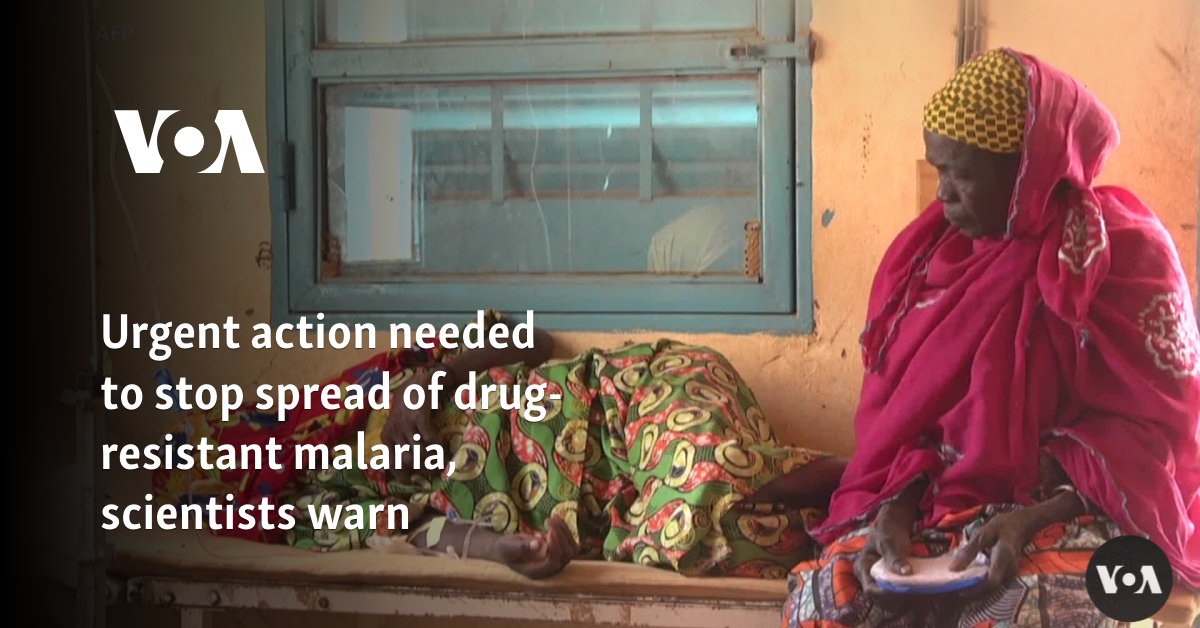Millions of lives could be at risk unless urgent action is taken to curb the spread of drug-resistant malaria in Africa, according to a new study published in the journal Science.
The parasite that causes malaria is showing signs of resistance to artemisinin, the main drug used to fight malaria, in some East African countries, according to the paper.
“Artemisinin resistance mutations were found in more than 10 percent of malaria cases in Ethiopia, Eritrea, Rwanda, Uganda and Tanzania,” the report said.
Artemisinin combination therapy (ACT) has become a cornerstone of malaria treatment in recent years, but there are worrying signs that its effectiveness is declining, said report co-author Lorenz von Seidlein of the Mahidol Oxford Tropical Medicine Research Unit in Bangkok.
“We're seeing more and more reports from East Africa of resistance to the first-line drugs for malaria,” he says. “The first-line drugs are artemisinin combination therapy, which has been used for the last 20 years and has been very effective, but now it's not as effective as it used to be.”
It is estimated that more than 1,000 children die from malaria every day in Africa. The World Health Organization estimates that the global death toll from malaria in 2022 was 608,000, according to the latest figures available.
Past lessons
Before the development of artemisinin therapy, chloroquine was the drug most commonly used to treat malaria, and the report authors say that signs that the malaria parasite was becoming resistant to chloroquine were widely ignored in the 1990s and early 2000s.
“Chloroquine resistance slowly made its way into Africa and was followed by a wave of childhood deaths – many, many children dying, probably millions, because chloroquine no longer worked as well as it did before. And now we are seeing the first signs that something similar is happening with ACT, which of course is very worrying,” von Seidlein says.
Emergency Actions
The report authors call on policymakers and global funders to act now to prevent artemisinin resistance from taking hold.
Their recommendations include combining artemisinin drugs with other medications.
“Triple-drug combination therapy using an artemisinin derivative drug and two partner drugs [TACTs] “This is the simplest, most affordable, readily implementable and sustainable approach to combat artemisinin resistance,” the report states.
The authors also call for the introduction of new and more effective insecticides and bed nets, better training of local health workers, the rapid introduction of new malaria vaccines, and improved surveillance of parasite mutations.
Southeast Asia
Von Seidlein points out that many of these methods have been used to halt the spread of artemisinin resistance in Southeast Asia since 2014.
“Ultimately, there was recognition that this could become a major global health emergency, and so there was significant investment from donors in high-income countries in Mekong countries to stop the spread of artemisinin-resistant parasites,” he says.
The report states that there must now be a sense of urgency in tackling artemisinin resistance in Africa.
“We appeal to donors, especially the Global Fund to Fight AIDS, Tuberculosis and Malaria. [GFATM] “The African ministries of health involved in Tanzania's malaria program and the U.S. government's Presidential Malaria Control Plan need to be proactive and step up funding for malaria control and elimination programs to halt the spread of artemisinin resistance in Africa, as they have done so effectively in Southeast Asia since 2014,” said Ntuli Kaporogwe, director of preventive services at the Tanzanian Ministry of Health and co-author of the report.




